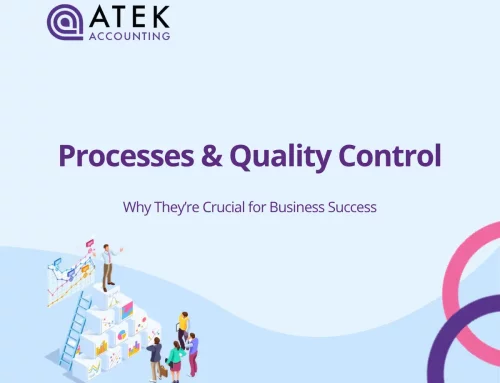
The Vital Role of Cash Flow Planning in Small Business Management
Running out of cash is a small business’s biggest risk. It’s not surprising, really, as planning cash flow can be tricky. It’s essential to manage your cash flow effectively, not only for your immediate financial well-being but also for the long-term growth of your company.
There are so many variables that determine how much money is needed for operations. You might borrow more than you need, or you may have funds in the business that are unnecessarily idle. Like we said, tricky (and a recipe for a headache).
While it is difficult, forecasting cash flow is absolutely essential to the success of a business. It ensures that you have the cash you need to not only survive but also thrive.
Key Numbers for Effective Cash Flow Planning:
1. Cash in the bank
It is obvious that a business needs to know how much money is in the bank, but what makes a business successful is knowing how long that money will last based on spending levels. During recessions, many businesses aren’t able to generate adequate cash to meet monthly outgoings for most of the year. So how have some impacted businesses survived?
Through cash flow planning, businesses can determine how long they can survive before they go bust. Knowing this allows them to plan ahead and make better business decisions to improve their position throughout the year.
2. Turnover – Revenue and Inventory
Knowing your turnover or gross revenue (i.e., the total amount of money you’ve brought in from sales) is a crucial number to know, but when it comes to cash flow forecasting, things like inventory turnover are also essential.
Inventory turnover is the rate at which you keep and use your inventory after you have purchased it. You might not think that this number is important, but inventory can sometimes hide problems within the business that you wouldn’t otherwise see. By looking at metrics like this while cash flow planning, you can know whether you should be buying more or less inventory at a time and what effect this will have on your profitability.
3. Cost of sales
While revenue is a vital number to know, the cost of sales is even more critical. Why? Because if making those sales costs you more than the money you brought in from them, you are actually making a loss and are heading for some major cash flow problems.
Even if your business is growing, this doesn’t automatically mean that you are heading in the right direction. So, pay close attention to the cost of sales figure when cash flow planning. Calculate the costs involved in making your sales – the cost of inventory if you sell tangibles or the cost of labour if you sell services.
A small decrease in the cost of sales can have as much impact on gross profit as a large increase in sales. If you’re aware of these costs, you can improve them by negotiating with suppliers for better prices or tightening up work processes to reduce labour hours.
4. Net Profit
While maintaining a healthy cash flow is crucial, net profit is the ultimate measure of a business’s success. It is your bottom line – everything you’ve made after subtracting all direct and fixed costs.
So why is this important for cash flow planning? The net profit margin helps you see whether you are generating enough profits from your sales and whether operating and overhead costs are being contained. If you’re not doing either, then you should know where and how you need to make adjustments.
Don’t Confuse Cash Flow With Revenue
Revenue is only a measurement of a one-way inflow of money, whereas cash flow demonstrates all movements of money through your business, including income, outgoings, and existing cash. Cash flow forecasting allows you to track your business’s financial health while also planning for any expected peaks or dips in business in the future.
So many metrics can indicate profitability; you need to analyse the right ones before you can be sure that your revenue growth is cause for celebration (not commiseration!). Isn’t that what we all need in the current climate?
Strategic Cash Flow Planning
As experts in helping small businesses take control of their finances, we can help you review your cash flow planning approach. Don’t spend another minute wondering if you’re on the right path. Get started with Atek.
More resources:













